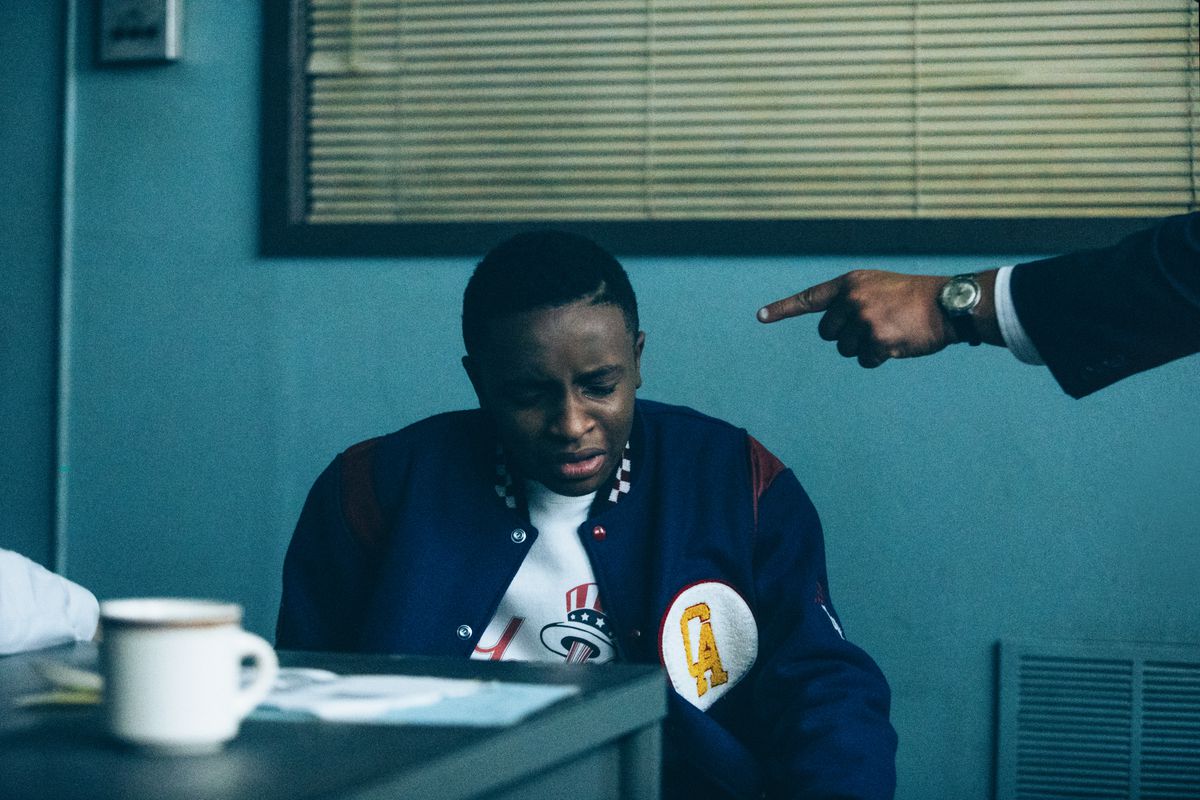My mind has been wandering today because of what I saw on television.
Last night Ginger and I watched all four episodes of When They See Us, an original Netflix series written and directed by Ava DuVernay, that tells the story of the boys who became known as the Central Park Five after they were wrongly convicted for the brutal rape of a woman in Central Park in 1989. If you have not seen it, take the time, It is difficult and important. If you are white and you have not seen it, consider it required viewing.
The Central Park Five was going to be the original title, but DuVernay changed it. She explained her reasoning in a tweet that accompanied an early trailer.
Not thugs. Not wilding. Not criminals. Not even the Central Park Five. They are Korey, Antron, Raymond, Yusef, Kevin. They are millions of young people of color who are blamed, judged and accused on sight. May 31. A film in four parts about who they really are. WHEN THEY SEE US.
One of the most striking things to me was that the DA and lead detective refused to consider they had made a mistake even when the man who was guilty confessed and DNA evidence confirmed his confession. They had constructed a story that damned the boys and they refused to see it any differently. They were also among those who pressured the young boys, who edited their video testimony, and who coerced the confessions. They could not let themselves come to terms with what they had done or that they had been mistaken in the way they had seen the boys as suspects to begin with. Here were black teens in Central Park. Here was a white woman who was raped. Of course they did it. They reminded me of something of a friend from long ago used to say: “Never trust a zealot with a clear conscience.”
The media were complicit in that they did not investigate beyond what they were told by the cops and they gave megaphones to Donald Trump and others who demanded the boys face the death penalty, even before they were convicted. To see the actual footage of Trump’s comments from thirty years ago in light of things he has said in the last few weeks was chilling. He has not changed. We, as a nation, are the ones who have normalized him. The point of the show, however , is not to demonize him but to tell the story of the boys who lost so much of their lives because of the injustice done to them.
I was affected in several ways by the story, some of which I am still figuring out. Today I have kept coming back to the unwillingness of the DA and the cops to consider an alternate story. Once they had a narrative of the crime, they bent everything to fit it. Where my thoughts went from there were to theology. I don’t mean to say that race and racism were not the heart of the film. I am just saying where my mind went today.
I read a hopeful article about a Baptist church in Ohio who called Erica Sanders, a transgender woman, as pastor—not because she was transgender, but because she was the best candidate for the job. They believe God is calling them together. I stared at the title of the article
Baptist church calls transgender pastor
thinking, “I never expected I would see those words in one sentence.” For those words to be put together meant that a bunch of people had to let go of the narrative they had built their lives around, consider the new things God had taught them, and write a new narrative rather than digging in.
Sanders said, “With God’s help, together we can follow the example of Christ and create a beloved community marked by abiding peace, expansive love and radical justice in Oberlin and beyond.” And yet, some of the comments on the BNG website could say nothing but, “WRONG WRONG WRONG.”
The cops and the DA blew the case because they decided the boys were guilty and then could not let themselves see it any differently. Listen to the white nationalist rhetoric and the dynamic is not different: they have decided that anyone not like them is a threat and they can’t let themselves see it any differently.
When we choose doctrine over relationship—when being right is more important than incarnating love—we follow the same arc in the sense that those who we see as “sinners” or whom we think are wrong can never be redeemed in our eyes because we won’t make room for God to offer a new story. If doctrine were paramount, there would never have been a need for the Incarnation. Those in power, which is to say those for whose doctrine made sure they were always right, railroaded Jesus to execution with about as strong a case as the Manhattan DA had in 1989.
Before they could kill him, Jesus spent his time telling those who felt wrongly convicted by life that he loved them. That love—not the doctrine—is what has stayed vibrant for two millennia.
I told you my mind has been wandering today. I love days like this.
Peace,
Milton

Nice. One of my favorites.
Good thoughts…wonderful writing. We are here in NH at our sister-in-law’s funeral. She was a good woman.Sh spent her last three weeks in the Hospice house she built 25 years ago, thanking and saying good-bye to as many people her breath allowed her to reach. Geraldine Stone Donahue, a fierce and beautiful fighter.
She sounds a lot like my mother. Sending love from Connecticut.